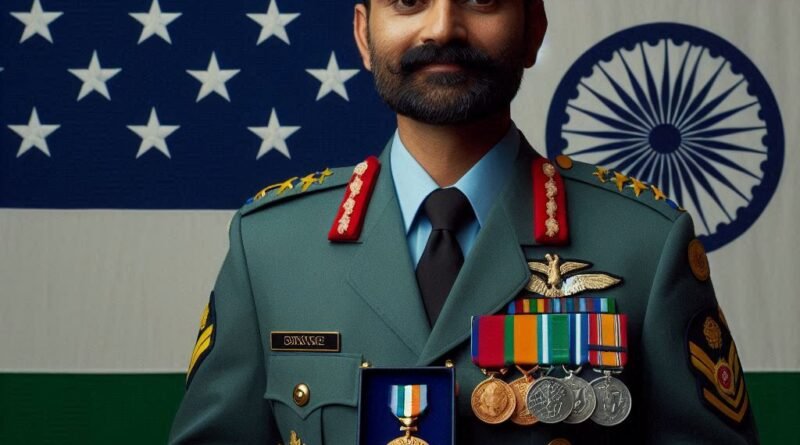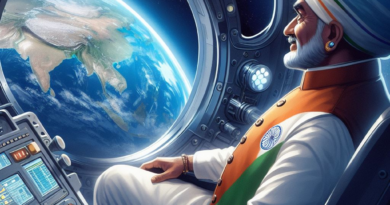Indian Peacekeeper to Receive Posthumous Dag Hammarskjold Medal| Ias Banenge
Context:
Indian peacekeeper Naik Dhananjay Kumar Singh, who served with the United Nations Stabilisation Mission in the Democratic Republic of Congo (MONUSCO), will be posthumously awarded the prestigious Dag Hammarskjold medal for his service and sacrifice.
Relevance:
GS II: International Relations
READ MORE- India to Use Food Irradiation to Mitigate Onion Shortages Amid Declining Output
Dimensions of the Article:
- Service of Naik Dhananjay Kumar Singh and MONUSCO
- International Day of UN Peacekeepers
- UN Peacekeeping Forces
Service of Naik Dhananjay Kumar Singh and MONUSCO
Service and Sacrifice:
- Naik Dhananjay Kumar Singh served under the United Nations (UN) flag as part of MONUSCO.
- He lost his life in the line of duty, exemplifying an unwavering commitment to peacekeeping efforts.
Role of MONUSCO:
- MONUSCO took over from a previous U.N. peacekeeping mission in the African country in 2010.
- Its mission is to protect civilians, humanitarian personnel, and human rights defenders from imminent threats of physical violence.
- It supports the government of the country in stabilization and peace consolidation efforts.
The Dag Hammarskjöld Medal
Purpose:
- Established in December 2000, the Dag Hammarskjöld Medal is a posthumous award to members of peacekeeping operations who lost their lives during service under the operational control of the United Nations.
Namesake:
- Named after former UN Secretary-General Dag Hammarskjöld, who died in a plane crash while on a peacekeeping mission in 1961.
Award Ceremony:
- Held annually on Peacekeeper’s Day (29th May), the medal is awarded to any Member State that has lost one or more military or police peacekeepers.
International Day of UN Peacekeepers
Establishment:
- The International Day of UN Peacekeepers was established by the UN General Assembly in 2002.
- It honors all men and women serving in peacekeeping and commemorates those who have lost their lives in the cause of peace.
2024 Theme:
- “Fit for the future, building better together” emphasizes the evolution and adaptability of UN Peacekeeping to address future conflicts.
UN Peacekeeping Forces
- UN Peacekeeping is a joint effort which deploys troops and police from around the world, integrating them with civilian peacekeepers to address a range of mandates set by the UN Security Council (UNSC) and the General Assembly.
- This joint effort between the Department of Peace Operations and the Department of Operational Support helps countries navigate the difficult path from conflict to peace.
- According to the UN Charter, every Member State is legally obligated to pay their respective share for peacekeeping.
- Since 1948, UN Peacekeepers have undertaken 71 Field Missions.
- There are approximately 81,820 personnel serving on 13 peace operations led by UNDPO, in four continents currently.
- This represents a nine-fold increase since 1999.
- A total of 119 countries have contributed military and police personnel to UN peacekeeping.
- Currently, 72,930 of those serving are troops and military observers, and about 8,890 are police personnel.
India’s contribution to UN Peacekeeping
- India has a long history of service in UN Peacekeeping, having contributed more personnel than any other country.
- To date, more than 2,53,000 Indians have served in 49 of the 71 UN Peacekeeping missions established around the world since 1948.
- Currently, there are around 5,500 troops and police from India who have been deployed to UN Peacekeeping missions, the fifth highest amongst troop-contributing countries.
- India has also provided, and continues to provide, eminent Force Commanders for UN Missions.
- India is the fifth largest troop contributor (TCC) with 5,323 personnel deployed in 8 out of 13 active UN Peacekeeping Missions, of which 166 are police personnel.
- India’s contribution to UN Peacekeeping began with its participation in the UN operation in Korea in the 1950s, where India’s mediatory role in resolving the stalemate over prisoners of war in Korea led to the signing of the armistice that ended the Korean War. India chaired the five-member Neutral Nations Repatriation Commission, while the Indian Custodian Force supervised the process of interviews and repatriation that followed.
- The UN entrusted the Indian armed forces with subsequent peace missions in the Middle East, Cyprus, and the Congo (since 1971, Zaire).
- India also served as Chair of the three international commissions for supervision and control for Vietnam, Cambodia, and Laos established by the 1954 Geneva Accords on Indochina.
Role of women in Indian Peacekeeping
- India has been sending women personnel on UN Peacekeeping Missions.
- In 2007, India became the first country to deploy an all-women contingent to a UN Peacekeeping Mission.
- The Formed Police Unit in Liberia provided 24-hour guard duty and conducted night patrols in the capital Monrovia, and helped to build the capacity of the Liberian police.
- These women officers not only played a role in restoring security in the West African nation but also contributed to an increase in the number of women in Liberia’s security sector.
Medical care as part of India’s Missions
- In addition to their security role, the members of the Indian Formed Police Unit also organised medical camps for Liberians, many of whom have limited access to health care services.
- Medical care is among the many services Indian Peacekeepers provide to the communities in which they serve on behalf of the Organization. They also perform specialised tasks such as veterinary support and engineering services.
- Indian veterinarians serving with the UN Mission in South Sudan (UNMISS), stepped up to help cattle herders who were losing much of their stock to malnutrition and disease in the war-torn nation.
- The Indian contingent in South Sudan has provided vocational training and life-saving medical assistance, as well as carrying out significant road repair work.
- In September 2020, based on an urgent request received from the UN Secretariat, India deployed two medical teams of 15 medical personnel each at Goma (DRC) and Juba (South Sudan).
- The Hospital by India in Goma, operational since January 2005, has 90 Indian nationals including 18 specialists.
-Source: The Hindu




